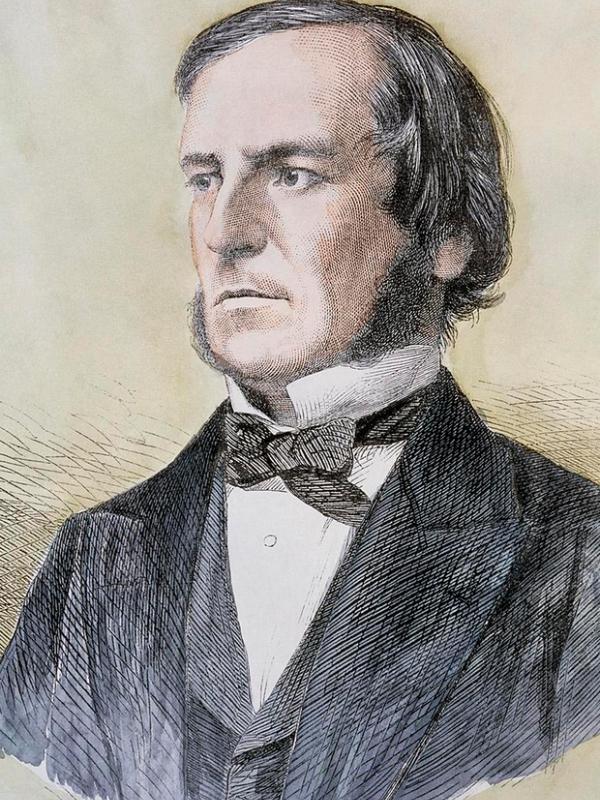It probably doesn't matter which country you live in you'll be familiar with news stories of large government IT projects that have either failed completely to deliver or have gone seriously over budget and resulted in numerous bugs. Listen to this recent radio interview by University of Auckland Computer Science Lecturer, Paul Ralph; he says "when it comes to the public procurement of big software design projects - don't! He says the total cost of larger IT projects always cost more than everyone thinks, they're almost impossible to accurately forecast in advance, and innovation is constantly undermined by the tender process."
Wednesday, October 28, 2015
Tuesday, October 20, 2015
How a Victorian mathematics don became a digital pioneer
"With a steely glare, a starched collar and a pair of truly prodigious sideburns, he is the digital pioneer you have almost certainly never heard of. Now, 200 years after his birth, George Boole is finally to get the acclaim he deserves." So begins a recent article in The Guardian. Well of course, if you're a computer scientist, you almost certainly have heard of George Boole; he after all was the creator of Boolean logic. However, that's probably all you know so there will be much about him that you're not aware of. As with Charles Babbage, Ada Lovelace, and of course Alan Turing it's good to see these formerly obscure digital pioneers getting the public recognition they so deserve. Perhaps as our society becomes more and more dependent on computers we're starting to realise that these people are every bit as important as Galileo, Newton, Darwin, Faraday,...
Thursday, October 15, 2015
Home automation (update)
Last year I wrote about my first entry into the field of home automation and the Internet of Things. My first purchase was a combined motion sensor, video camera and Z-Wave hub that can control switches or lights remotely. The device, called Piper, also has sensors for temperature, light, and sound and contains a security siren. I then added some Belkin Wemo LED lights, that required a separate controller and then some OSRAM Lightify LED bulbs and light strips that required their own controller. Ok so now things were getting rather complex with three separate controllers controlling different things. This really reflects the state of the home automation market with many competing standards fighting for dominance; such as: Z-Wave, ZigBee, Hue, Wemo, and even Google and Apple now entering the fray.
I then came across something called Smartthings that can talk to most of the different automation standards allowing a single controller to automate a wide variety of devices. Of particular interest to me also was that it supports open-source code allowing developers to make their own "SmartApps" for their own needs. which then they can share with the Smartthings community. For example, somebody might make a SmartApp to always ensure that the garage door is closed at sunset. Somebody else might make a SmartApp to turn on the irrigation system at Sunset for one hour, but only if it hasn't rained in the previous day. I now have a Smartthings hub controlling a variety of lights, a motion sensor, garage door opener, and video door bell. My favourite functionality is being told if the garage door is open if I've left home and being able to remotely close it. The Ring video doorbell that lets me see who's at the front door and talk to them, even when I'm not at home, is pretty cool as well.
I then came across something called Smartthings that can talk to most of the different automation standards allowing a single controller to automate a wide variety of devices. Of particular interest to me also was that it supports open-source code allowing developers to make their own "SmartApps" for their own needs. which then they can share with the Smartthings community. For example, somebody might make a SmartApp to always ensure that the garage door is closed at sunset. Somebody else might make a SmartApp to turn on the irrigation system at Sunset for one hour, but only if it hasn't rained in the previous day. I now have a Smartthings hub controlling a variety of lights, a motion sensor, garage door opener, and video door bell. My favourite functionality is being told if the garage door is open if I've left home and being able to remotely close it. The Ring video doorbell that lets me see who's at the front door and talk to them, even when I'm not at home, is pretty cool as well.
Monday, October 12, 2015
What happens if your Government "unfriends" you?
Sounds crazy right? Perhaps not if you're Chinese. China is launching a system that gives a score to every citizen. This is partially similar to the credit scoring systems that Western nations have used for years, but it also includes a component that measures the political trustworthiness of citizens. If you are a political critic of the Government your score will go down. But, what's really sinister is that if your friends have low ratings, your rating will be reduced. This social network may encourage people to "unfriend" any friends that show dissent. We in the west are perhaps used to, and certainly aware of the fact, that our spy masters have access to our social media accounts. China is taking this a step further by building a social network into the state's functioning. Read this article from the American Civil Liberties Union for more on this story. Thanks to my colleague Mark Wilson for this story.
Friday, October 2, 2015
10 awesome internet hacks to make your life better
Well I'm not sure that they are "awesome" but they are potentially useful, interesting or just fun. The Guardian recently published "10 awesome internet hacks to make your life better" that range from: how to log out of Facebook remotely if you left it running on a friend's or relative's computer, how to bring up an emoji keyboard on your Mac or PC, and how to watch YouTube in slow motion. One hack they don't mention though is this one; if you use Chrome type "do a barrel roll" into the search bar". Go on give it a try.
Subscribe to:
Comments (Atom)





